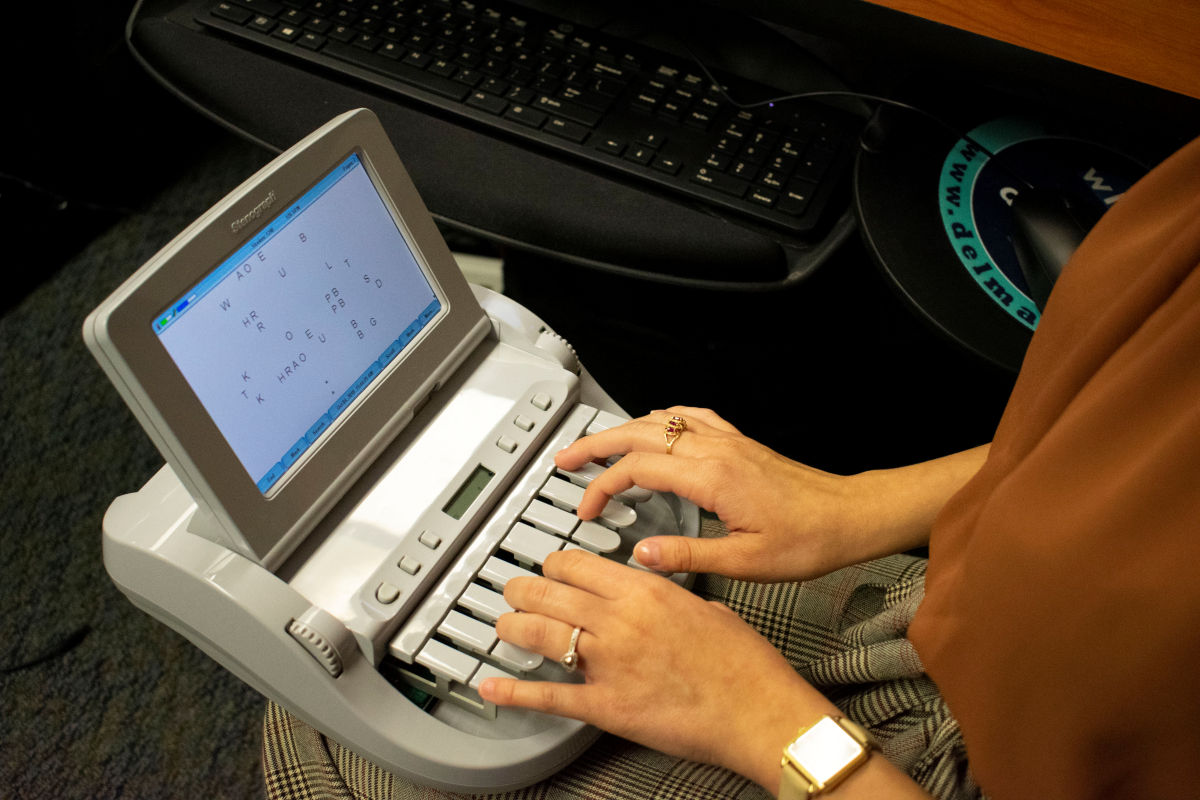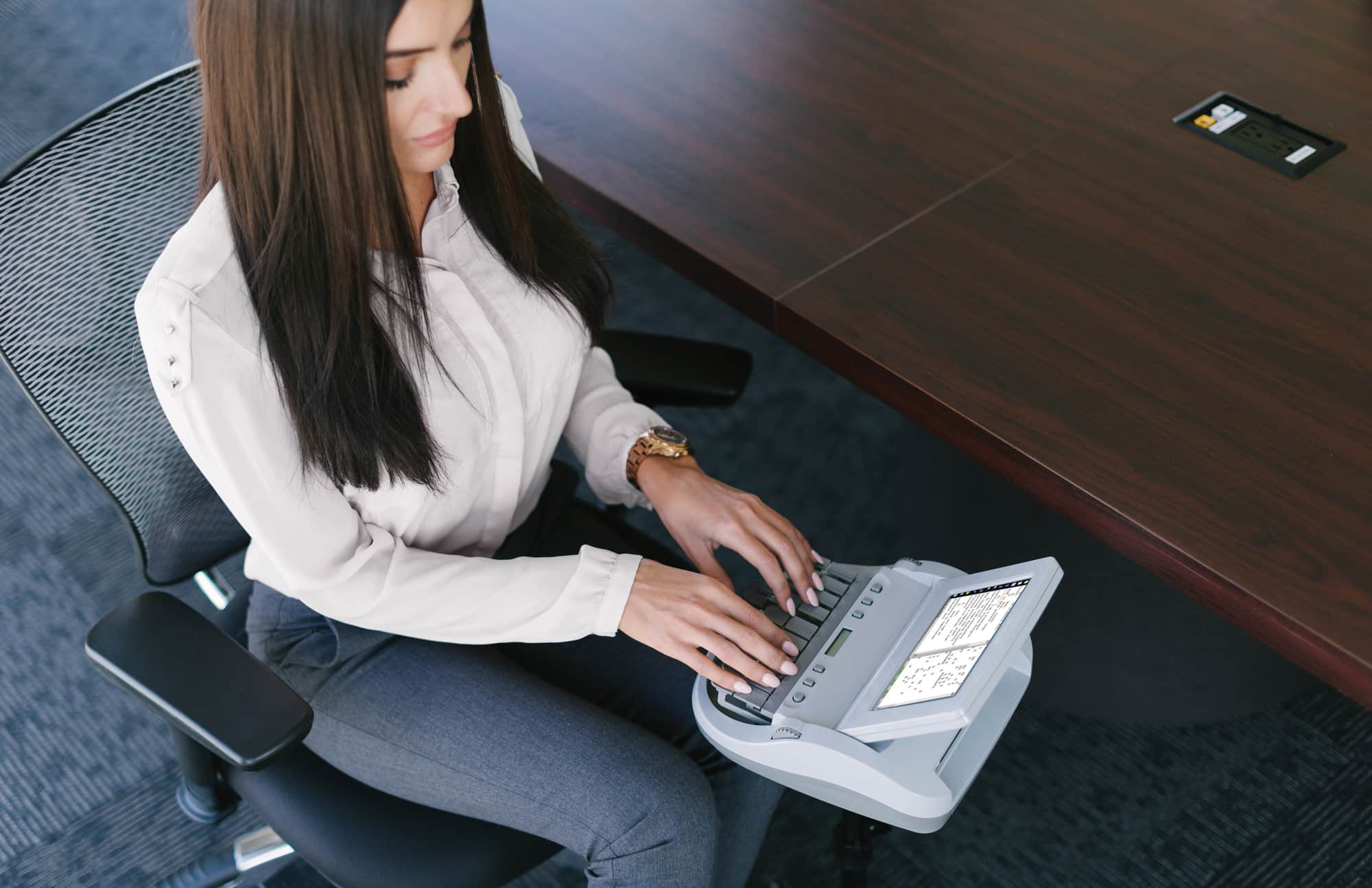Recognizing the Vital Role of Court Coverage in Legal Procedures
Court reporting is usually ignored, yet it's important in legal process. You may not realize just how court reporters guarantee every word talked is taped precisely, impacting choices made by discretionary. Their abilities and technology play a significant duty in preserving the honesty of lawful records. Yet exactly what does the procedure involve, and exactly how has it advanced in time? Let's discover the fundamental functions of court reporting and its value in the lawful landscape.
The History of Court Reporting
Court reporting has an abundant background that dates back to old civilizations, where scribes utilized different approaches to record spoken words. By the 16th century, modern shorthand systems began to take form, making it possible for court press reporters to create accurate records successfully.
Today, court reporters play a considerable role in lawful proceedings, making sure that every word talked in the court is accurately recorded. Understanding this history highlights the importance of court coverage in maintaining a reasonable legal system.
The Abilities Required for Court Reporters
As a stenotype reporter, you need solid inputting abilities to stay up to date with the busy discussion of legal process. Your capability to pay attention attentively is equally as necessary, guaranteeing every word is recorded precisely. Understanding these abilities is essential to delivering specific and reputable records.
Skillful Keying Capacities

Solid Paying Attention Skills
Strong paying attention abilities are important for stenotype reporter, as they have to accurately catch talked words in real time. You need to focus intently on the dialogue, grabbing subtleties, tone, and context to assure every detail is tape-recorded properly. This ability aids you distinguish between speakers, comprehend lawful lingo, and adhere to intricate discussions. It's not nearly hearing words; it's about comprehending and translating them promptly. You'll frequently deal with different accents and speech patterns, so flexibility is crucial. Exercising energetic paying attention strategies can boost your abilities; for instance, summarizing what you've heard after discussions can reinforce your skills. Ultimately, strong listening skills make you an indispensable asset in lawful proceedings, guaranteeing clarity and precision in the court document.
The Modern Technology Behind Court Reporting
In the domain name of legal procedures, modern technology plays a crucial function in boosting the accuracy and effectiveness of court coverage. You're most likely accustomed to the typical stenotype device, yet modern stenotype reporter currently use sophisticated software program that integrates with these makers, allowing real-time transcription. This indicates you can have instant access to the transcript as the process unravel.
Digital audio recording is another technological improvement that's obtaining traction. It captures every spoken word, ensuring absolutely nothing is missed out on. Some press reporters use voice recognition software, which can assist enhance the transcription procedure, though it still calls for human oversight for accuracy.
Additionally, cloud-based storage enables simple gain access to and sharing of transcripts, boosting partnership amongst legal groups. By leveraging these technologies, court press reporters can supply high-quality, prompt records that are vital for the legal procedure. Accepting this technology not just boosts your understanding but additionally guarantees dependability in legal paperwork.
The Court Reporting Process

As legal procedures unfold, the court reporting procedure becomes vital in recording every information properly. You'll locate that a stenotype reporter plays a crucial function by recording talked words into written message in real-time. When you step right into the courtroom, the reporter is currently prepared, geared up with specialized devices like stenographic makers and audio recording devices.
During the proceedings, the reporter pays attention diligently, typing out every little thing said, from witness testimonies to legal representatives' arguments. You may see them stopping briefly periodically to assure clarity or to ask for a repeat if something wasn't clear. After the session, the reporter evaluates the transcript, making essential edits for readability.
This whole process not only guarantees a complete document however likewise prepares you for future reference throughout appeals or situation reviews. In the fast-paced environment of a court room, the court reporting procedure is essential for preserving an exact account of occasions.
The Significance of Precision in Records
While a court press reporter's primary duty is to record spoken words, the precision of these records is imperative for the honesty of legal procedures. When you're included in a case, you rely on specific documentation to recognize the occasions and arguments offered. Any kind of errors in transcription can cause misunderstandings, false impressions, or even wrongful judgments.
Exact transcripts guarantee that every detail is recorded, offering a dependable document for courts, lawyers, and juries. This level of detail is important during appeals or when referencing past statements. If a records consists of mistakes, it can weaken the whole legal process, possibly impacting results.
Additionally, exact records promote the civil liberties of all events involved, advertising fairness and try this out transparency. Whether you're an attorney preparing for test or a witness mirroring on your statement, you can trust that the court reporter's skill in precision plays a considerable role in your instance's success.
The Duty of Court Reporters in Various Legal Settings
Court press reporters play an important duty in numerous legal settings, from trials to depositions and lawful hearings. You'll discover that their job guarantees every spoken word is accurately recorded, which is important for the legal procedure. Recognizing how their obligations differ throughout these environments can highlight their impact on the justice system.
Court Reporters in Tests
In any legal test, you'll find that court press reporters play an important function in catching the process with precision and precision. Court press reporters have to keep emphasis and speed, often using specialized tools to maintain up with fast-paced dialogue. Inevitably, court reporters aid support the justice system, making sure openness and liability throughout trials.
Depositions and Lawful Hearings
Beyond tests, court reporters likewise play a crucial role in depositions and lawful hearings. Court press reporters provide real-time transcription services, permitting attorneys to comply with along and resolve any problems quickly. In short, court press reporters are indispensable in preserving the honesty and clearness of the lawful document in depositions and hearings.
Future Trends in Court Reporting
As innovation remains to evolve, the future of court reporting assures to be shaped by ingenious devices and practices that improve accuracy and effectiveness. You'll likely see boosted use of man-made intelligence and real-time transcription services, enhancing the reporting procedure. These advancements can help you access records faster, which can be important for your legal techniques.
Furthermore, integrating video conferencing and remote reporting will become more usual, allowing you to attach with stenotype reporter from anywhere (court reporting). This flexibility can make depositions and hearings extra accessible, saving both time and sources
You'll additionally see a focus on digital recordkeeping, which simplifies the storage and access of records. With cloud-based options, you'll have the capability to share files securely and collaborate with your lawful group in real-time.
Often Asked Questions
What Is the Average Wage of a Court Press Reporter?
The ordinary wage of a court press reporter varies by area and experience, yet you can expect it to range from around $50,000 to $80,000 each year. Lots of aspects influence this income, consisting of expertise and demand.
Just how Do I Become a Qualified Court Press Reporter?
To become a qualified court press reporter, you'll need to finish a court reporting program, pass an accreditation exam, and gain sensible experience. It's vital to stay upgraded on market standards and proceeding education and see this learning demands.
What Sorts of Situations Do Court Reporters Cover?
Court press reporters cover various situations, including criminal trials, civil suits, depositions, and arbitration hearings. You'll discover them recording whatever, ensuring precise documents for courts, attorneys, and celebrations entailed, capturing every word spoken in lawful setups.
Are Court Reporters Required to Have a Degree?
Yes, court press reporters typically need a level or qualification in court coverage. Many programs provide specialized training, guaranteeing you obtain the skills required for precise transcription and lawful documents in click site various settings.
Can Court Reporters Work From Another Location?
